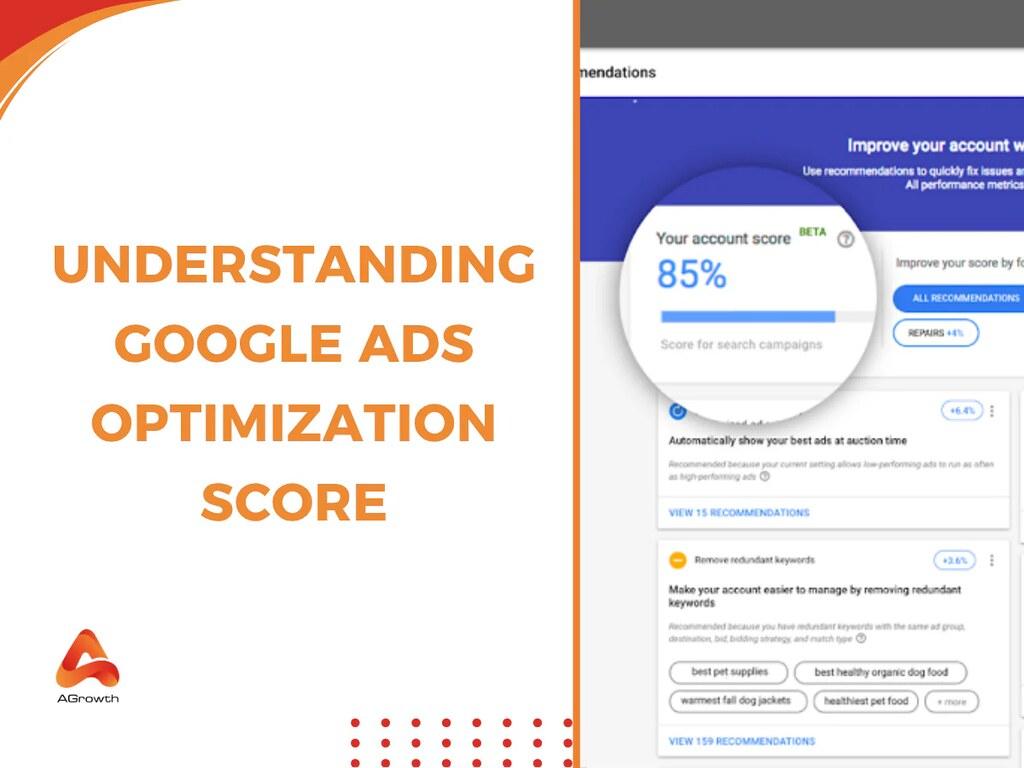Table of Contents
- Understanding the Fundamentals of Website Flipping
- Identifying Lucrative Niches for Your First Flip
- Assessing Website Value: Key Metrics to Consider
- Maximizing Profit through Strategic Improvements
- Navigating the Sale: Tips for a Smooth Transition
- Q&A
- The Way Forward


Understanding the Fundamentals of Website Flipping
Website flipping involves buying existing websites, improving them, and then selling them for a profit. While it may sound simple, mastering the nuances of this practice requires a blend of analytical skills, design acumen, and marketing savvy. Beginning your journey in website flipping means focusing on identifying undervalued websites with potential. Key factors to consider when evaluating a website include:
- Domain Authority: Higher authority can translate into better search engine rankings.
- Traffic Sources: Analyzing where the traffic comes from can guide improvement strategies.
- Monetization Methods: Understanding how the site generates revenue will inform your own strategies.
Once you’ve secured a website, the next step is to enhance its value. This includes both on-page and off-page optimization techniques. Strategies may involve upgrading the site’s layout for user-friendliness, optimizing content for relevant keywords, or boosting its social media presence. It’s crucial to track changes using analytics tools to ensure your efforts yield positive results. Here’s a quick overview of essential improvements:
| Improvement Area | Action Steps |
|---|---|
| Design | Update themes and layouts for better aesthetics. |
| Content | Revise old posts; create new, engaging content. |
| SEO | Implement on-page SEO tactics; revise meta tags. |
| Monetization | Explore affiliate marketing and ad placements. |
preparing for the sale of your improved website requires a strategic approach. Create a detailed portfolio showcasing your enhancements, traffic statistics, and revenue streams. This documentation not only demonstrates the website’s value but also builds trust with potential buyers. Furthermore, leverage online marketplaces and forums for listing your site, ensuring to tap into the appropriate buyer networks while highlighting its key features. Remember, the right presentation can significantly influence the sale price!


Identifying Lucrative Niches for Your First Flip
When venturing into the world of flipping websites, the first step is discovering niches that hold the promise of profitability. A lucrative niche is one that not only interests you but also exhibits growth potential and demand. Start your research by observing trends in various sectors using tools like Google Trends, social media analytics, and even community forums. By tapping into these resources, you can uncover areas that are not only popular but also underserved, providing you with an opportunity to add value and attract buyers.
Consider focusing on specific demographics or interests. For example, niches such as eco-friendly products, personal finance, or pet care can offer substantial returns. Each of these areas allows for specialization, which can enhance your website’s appeal to a targeted audience. Additionally, leveraging keywords related to these niches can significantly improve your site’s search engine rankings. It’s crucial to identify long-tail keywords that reflect user intent and have lower competition, making it easier for your site to gain visibility.
To streamline your decision-making process, here’s a simple table summarizing top niches along with their potential profitability and competition level:
| Niche | Potential Profitability | Competition Level |
|---|---|---|
| Eco-friendly Products | High | Medium |
| Personal Finance | Very High | High |
| Pet Care | High | Medium |
| Health and Wellness | High | High |
| Remote Work Solutions | Medium | Medium |
This table serves as a starting point for evaluating various niches; consider conducting deeper research to develop insights specific to your unique context. By understanding what these niches offer and how they can align with your skills, you can effectively position yourself in the dynamic environment of website flipping.
Assessing Website Value: Key Metrics to Consider
When venturing into the world of website flipping, understanding the value of a website is paramount to making informed buying and selling decisions. Key metrics serve as indicators of a site’s overall health and potential profitability. Here are several crucial factors that you should assess:
- Traffic Volume: The amount of traffic a website receives is a direct measure of its visibility and relevance. Utilize tools like Google Analytics to gauge the monthly visitor count and unique visitors.
- Revenue Streams: Analyze how the site generates income. Common sources include affiliate marketing, ad placements, and product sales. A diversified income stream adds value and reduces risk.
- Domain Authority: This metric reflects a site’s credibility and ranking potential on search engines. Tools such as Moz can help assess a website’s authority, influencing both its sale price and future growth opportunities.
In addition to these metrics, the website’s growth potential should not be overlooked. Evaluating recent trends and future scalability can reveal lucrative opportunities.
| Metric | Importance |
|---|---|
| Traffic Volume | Indicates market interest and reach |
| Revenue Streams | Diversifies income risk |
| Domain Authority | Affects SEO and visibility |
consider the overall user experience and website design. A well-structured and user-friendly website not only retains visitors but also increases the likelihood of conversions, making it a more attractive proposition for potential buyers. Comprehensive assessments ensure you get the best value, whether you’re flipping or managing a website for the long haul.


Maximizing Profit through Strategic Improvements
To effectively enhance profitability in website flipping, it is essential to evaluate and implement strategic improvements that resonate with potential buyers. Start by performing a comprehensive analysis of your existing site. Identify key performance indicators (KPIs) such as traffic trends, bounce rates, and conversion rates. Tools like Google Analytics can provide valuable insights. Consider these impactful enhancements:
- Content Quality: Refresh outdated content and create engaging blog posts tailored to your niche audience.
- User Experience (UX): Simplify navigation and ensure that your website loads quickly to reduce bounce rates.
- SEO Optimization: Use targeted keywords and meta descriptions to improve search engine visibility and attract organic traffic.
In addition to these improvements, investing in the technical aspects of your website can yield significant returns. Focus on optimizing your site’s back-end performance by improving site speed and mobile responsiveness. Consider the following technical upgrades:
| Technical Improvement | Benefit |
|---|---|
| Image Compression | Faster loading times and improved UX |
| SSL Certificate | Enhanced security and trustworthiness |
| Regular Updates | Protection against vulnerabilities and better performance |
embrace the power of digital marketing to showcase your website’s potential to prospective buyers. Utilize social media platforms, email marketing, and online advertising to drive traffic to your site. Clear and engaging calls-to-action (CTAs) can convert visitors into leads. Remember to focus on building a strong brand presence that resonates with your target audience and highlights the unique features of your site. By fostering a community and engaging potential buyers, you position your website as a valuable investment opportunity.


Navigating the Sale: Tips for a Smooth Transition
Successfully transitioning ownership of a website involves strategic planning and careful execution. Before finalizing the sale, it’s crucial to organize your financials and documents to ensure transparency. Buyers will appreciate a well-maintained record of the website’s performance metrics, including traffic analytics, revenue reports, and past marketing strategies. Highlighting these elements can not only expedite the sale process but also help you secure a better price.
Another important aspect is ensuring that the website is in excellent shape before the transfer. Invest time in addressing any technical issues, improving site speed, and optimizing for SEO. Buyers are more likely to be interested in a website that requires minimal immediate changes. Here are some maintenance tips to consider:
- Backup Data: Always keep a recent backup of your site before the transfer.
- Update Software: Ensure that all plugins, themes, and the core content management system are updated.
- Create a Transition Document: Prepare a thorough guide for the new owner that includes login details, operational procedures, and maintenance tips.
communication is key. Be open and responsive throughout the negotiation process. Clearly outline the terms of the sale, address any questions the buyer may have, and provide reassurance regarding the website’s ongoing success. Constructing a positive rapport can make a significant difference in finalizing the deal. Consider the following suggestions to enhance your discussions:
- Set Clear Expectations: Discuss performance benchmarks and growth potential.
- Be Honest: If there are areas for improvement, acknowledge these to build trust.
- Offer Post-Sale Support: Assure the buyer that you will be available to help with the transition for a specified period.
Q&A
Q&A: Website Flipping for Beginners
Q: What is website flipping? A: Website flipping is the process of buying a website, improving its value by enhancing its content, design, or traffic, and then selling it for a profit. It’s akin to flipping houses, but in the digital realm.Q: How do I find websites to flip? A: You can find websites to flip on various online marketplaces such as Flippa, Empire Flippers, or even through social media groups focused on digital assets. Look for websites with potential for growth or those needing a bit of TLC.
Q: What should I look for when buying a website? A: Key factors to consider include the website’s traffic, revenue streams, domain authority, age, and overall design. Ensure that the site has a solid foundation and potential for improvement.
Q: Do I need technical skills to flip websites? A: While technical skills can be beneficial, they’re not absolutely necessary. Basic knowledge of website management and content creation can go a long way. Many resources and tools are available to help beginners improve their sites.
Q: How can I increase the value of a website? A: You can increase a website’s value by optimizing its content for SEO, enhancing its user experience, increasing traffic through marketing strategies, and establishing reliable revenue streams such as affiliate marketing or ads.
Q: What are some common mistakes to avoid when flipping websites? A: Beginners often overlook due diligence, such as verifying traffic sources and revenue claims. Others may invest too much time or money into unnecessary upgrades, or rush the selling process. Patience and research are key.
Q: How long does it take to flip a website? A: The timeline for flipping a website can vary. Some sites can be flipped in a matter of months with proper effort, while others may need a year or more to significantly improve. It all depends on the initial state of the website and your enhancement strategies.
Q: What kind of profit can I expect from website flipping? A: Profits can vary widely based on the investment and enhancements made. Some flippers report returns of 30% to 200% on their investments. However, it’s essential to set realistic expectations based on research and market trends.
Q: Is website flipping a sustainable business model? A: Yes, website flipping can be sustainable if approached strategically. Successful flippers often build a portfolio of websites and continuously refine their skills, adapting to market changes and trends.
Q: Where can I learn more about website flipping? A: There are numerous resources available online, including blogs, forums, eBooks, and courses dedicated to website flipping. Engaging with communities on platforms like Reddit or joining Facebook groups can also offer valuable insights.
Q: Any tips for beginners just starting in website flipping? A: Start small to understand the dynamics of website buying and selling. Focus on specific niches, conduct thorough research, and don’t rush the flipping process. Building knowledge and experience is key—every flip is a learning opportunity! — With these foundational questions and answers, you’re now better equipped to dive into the exciting world of website flipping. Happy flipping!

